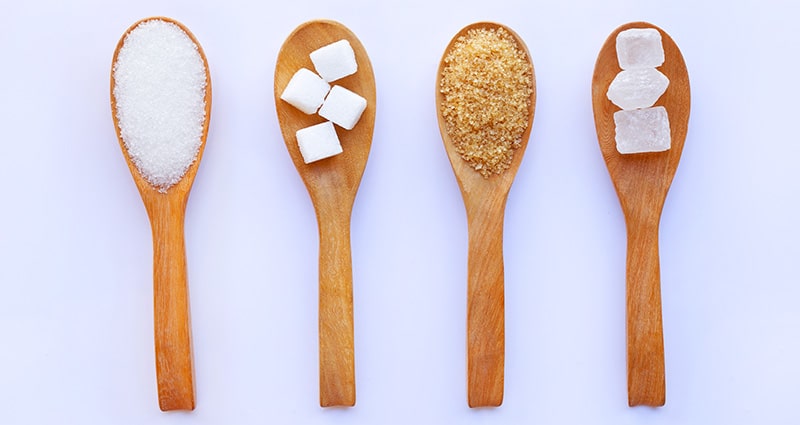Added sugars tend to sneak into some of our favorite snacks and drinks, or work their way into foods that we wouldn’t expect to find them in. Take some time to learn about added sugar, and why it’s key to limit your intake of it.
It’s no secret that Americans have a sweet tooth. Although sugar consumption has fallen slightly in the past few decades, the average American consumes around 17 teaspoons of added sugar every day. That’s true for adults, teens and children, and it’s not just a problem for your dental health. While too much added sugar in your diet can indeed lead to cavities, it’s also a big problem for your overall physical health.
What Are Added Sugars?
Sugars are carbohydrates, and you need carbohydrates to fuel everything you do. Your body breaks carbs down into blood glucose, or blood sugar, to provide energy for cell maintenance, physical activity and brain function.
However, while carbs break down into sugar eventually, not all carbs are sugar. Complex carbohydrates, such as whole grains and starchy vegetables, take longer for your body to break down. Sugars, on the other hand, are simple carbohydrates and break down faster.
Natural sugars are found in fruit, vegetables and dairy, and are part of a healthy diet. Added sugars are the sweeteners you probably consider to be sugar. They contain no nutrients. While they might provide a brief energy burst, you’re also consuming a lot of empty calories.
Why You Should Limit Added Sugars
Research has repeatedly found that consuming a lot of added sugar is bad for your health. High amounts of added sugars in one’s diet can contribute to:
- Heart disease
- Liver disease
- Obesity
- Stroke
- Type 2 diabetes
The U.S. Department of Agriculture’s dietary guidelines recommends that sugar accounts for no more than 10% of your daily calories. That’s around 12 teaspoons of sugar (50 grams) per day. The American Heart Association suggests just 6 teaspoons or 24 grams of added sugar daily for women, and 9 teaspoons and 36 grams for men.
Sugary Drinks: The No. 1 Offender
The biggest source of added sugars in the American diet is in what you drink. Soda, sweet tea, mochaccinos, sports drinks — they’re all packed with sugar. Cutting back on sugar-sweetened beverages can improve your health and even help you lose weight. And if you can’t give up soda or black coffee easily, switch to diet drinks and add artificial sweetener instead of table sugar.
Other Tips to Cut Back on Added Sugars
Eating a healthy diet full of complex carbohydrates and foods with naturally occurring sugars will keep you full longer and provide more energy throughout your day. In addition, try to:
- Beware of fancy wording. Many lists of ingredients don’t plainly say “sugar.” Look for ingredients like agave nectar, evaporated cane juice, high fructose corn syrup and fruit juice concentrates — they’re all sugars. Also watch out for words followed by “syrup” or ending in “ose.”
- Read the labels. The FDA now requires nutrition facts labels to list added sugars. You might be surprised how many apparently “healthy” foods are packed with added sugars.
- Make dessert and sweet snacks an occasional treat. Research suggests that sugar may be addictive. The less you consume, the less you are likely to want.




